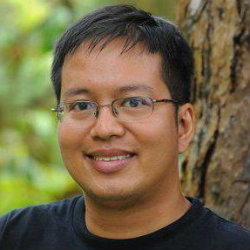PHL's first satellite Diwata-1 launched into orbit

Sa wakas, nakalayag tayo sa mga tala.
Filipinos around the world cheered in elation as the Diwata-1 satellite was finally released into orbit on Wednesday night, April 27, at exactly 7:45 p.m. (Philippine Time).
After spending just over a month onboard the International Space Station, the Diwata-1 was finally launched into orbit by British astronaut Tim Peake.
"Congratulations to the Philippines for the successful launch of their first satellite!" he said over the comms link, as Filipino onlookers across the world cheered.
According to information shared by International Space Station (ISS) Flight Operations Engineer Andrea Boyd, Peake's backgrounder notes highlighted Diwata-1's pioneering place in Philippine history.
"(The Diwata-1) is the first microsatellite owned by the Philippine government involving Filipino engineers in its development. The satellite is intended to observe Earth, monitor climate changes, and develop human resources," read Boyd's briefing notes.
The notes also pointed out that the 50-kg microsatellite was co-developed by the Department of Science and Technology (DOST), the University of the Philippines, Hokkaido University, and Tohoku University.
In honor of the occasion, the Philippine Flag was raised at the JAXA Tsukuba Space Center. A photo taken by Yoshimi Osada, shared by Dr. Rogel Mari Sese, showed our colors flying high alongside the Japanese flag.
Moreover, JAXA saw the Diwata-1 deployment as a shared victory, hoping that the pioneering launch will be the first of many to come.
"The deployment of the microsatellite combines the only air lock and robot arm in the ISS used in Kibo operations, which in the future, is expected to be one of the important means to meet the launch needs of microsatellites," the Department of Science and Technology (DOST) said in a statement sent to GMA News.
In a joint press event immediately after the launch, University of the Philippines - Diliman Vice Chancellor for Research and Development Dr. Fidel Nemenzo expressed enthusiasm for the future of the Philippines' nascent space program.
"We hope that this inspires our young children to go into space science; it overcomes a psychological barrier. A lot of kids think of this as just science fiction. But this shows that Filipinos, given enough support, can do what first world countries are doing in space," Nemenzo said.
PHL-MICROSAT Program Leader and ASTI Director Dr. Joel Joseph Marciano also added to the accolades, giving a special mention to the Filipino scholars in Japan who worked on the satellite over the past year.
"Diwata-1 may be a small satellite but it represents big dreams for the Philippines. We thank the young engineers and scientists who worked on this project... to enter the world stage," Mariano said.
It will be recalled that the Philippine team finished the satellite within a year, a monumental feat that saw the resignation of at least two of the scholars . — GMA News




